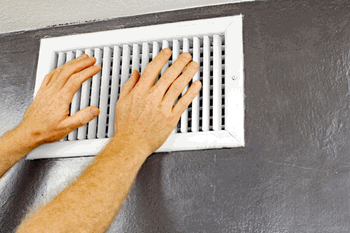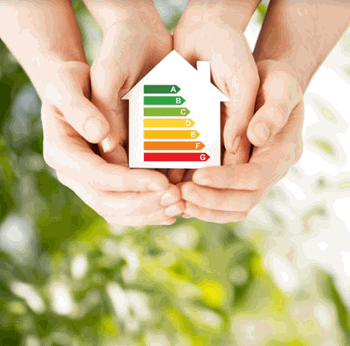Contents
 Homeowners are always searching for ways to lower their utility bills. Since over half of your annual energy costs stem from heating and cooling your home, one of the first things to look at is your HVAC system. Every effort that you make to improve your system’s energy efficiency translates into significant savings.
Homeowners are always searching for ways to lower their utility bills. Since over half of your annual energy costs stem from heating and cooling your home, one of the first things to look at is your HVAC system. Every effort that you make to improve your system’s energy efficiency translates into significant savings.
Many homeowners think that closing the air vents in unoccupied rooms will save them money. However, this notion is far from the truth.
When searching for “residential HVAC contractors near me,” you can contact Wilcox Energy. We provide a wide range of home comfort services, including A/C repairs, furnace replacements, heater installations, HVAC tune-ups, and more. Our team of NATE certified professionals has the knowledge and training to help you with all your heating and cooling needs. Call today to schedule your free estimate. We would love to take the time to answer any questions that you may have.
HVAC Contractors Westbrook CT: Can Closing HVAC Vents in Unused Rooms Save Money?
 Closing HVAC vents might seem like a good idea. Many homeowners think that it is an excellent way to prevent from heating or cooling unused rooms. However, when you close off air vents, you significantly increase your utility bills and affect your comfort levels. This article highlights what happens when you close the HVAC vents to unused rooms.
Closing HVAC vents might seem like a good idea. Many homeowners think that it is an excellent way to prevent from heating or cooling unused rooms. However, when you close off air vents, you significantly increase your utility bills and affect your comfort levels. This article highlights what happens when you close the HVAC vents to unused rooms.
How HVAC Systems Work
The blower in your HVAC system is primarily responsible for air distribution. As part of the refrigeration cycle, the blower pulls air from indoors through the return ducts. Once the heat is removed, the blower pushes the conditioned air back into the house through the supply ducts.
When you close off a few vents, it does not mean that your system starts to use less energy. Your system still pulls and transfers the same amount of air. Therefore, closing the vents implies that the same amount of air has a limited path (ducts) to travel through, increasing air pressure in your air ducts.
Higher Energy Bill
 The standard blower for most air conditioners is a permanent split capacitor (PSC). More efficient air conditioners have electronically commutated motor (ECM). Closing air vents in your home will have the same effect on both types of blower. It will make your blower work much more, straining the blower in the process.
The standard blower for most air conditioners is a permanent split capacitor (PSC). More efficient air conditioners have electronically commutated motor (ECM). Closing air vents in your home will have the same effect on both types of blower. It will make your blower work much more, straining the blower in the process.
An ECM blower is more efficient than a PSC blower because it can adjust its speed, depending on the situation. For instance, if you close a few air vents, the ECM blower will work harder so that it can overcome the added pressure. Unfortunately, a ramped up ECM blower uses more energy, resulting in higher energy bills.
Furthermore, the high pressure caused by the closed vents results in duct leakage. Energy Star reports that 20-30 percent of conditioned air is lost via tiny ductwork leaks. When you close your vents, the extra pressure can also make these small holes larger. This situation implies that the conditioned air bleeds through these leaks, resulting in an uncomfortable home with higher than average energy bills.
Reduced Comfort
Closing HVAC vents affects the comfort level of your home. Unlike an ECM blower that can adjust its speed, a PSC blower works at a fixed rate. It compensates for the extra pressure caused by closing your vents by running a little slower. When this happens, a reduced amount of cold air is distributed throughout your home. This circumstance can occur even when you close just a few of the vents. Consequently, heating up or cooling down your home will take a long time. In turn, your comfort is compromised.
Damaged HVAC System
Aside from affecting the quality of air and comfort you receive, closing the vents can also damage your system. Because of the reduced airflow, your A/C’s evaporator coil receives less air as well. Under normal circumstances, the evaporator coil is cold, and it is where the warm air from your home is cooled. When the warm air blowing through the coil, it helps the evaporative coil from getting too cold.
When you close a few vents, it reduces the airflow. A reduced amount of airflow causes the coil to freeze over. Consequently, the refrigerant will flow back to the outdoor unit instead of passing through. In turn, the coolant overflows on your compressor, destroying it. Also, when the ice thaws, water will seep through your system and cause water-related damages.
Low airflow also affects your furnace’s heat exchanger. Your heat exchanger will eventually overheat due to the reduced airflow. Overheating can lead to cracks and other damages to your system.
In this video, you will find some useful tips to help cut on energy costs:
Conclusion
Keep all your HVAC vents open. Remember that closing your HVAC air vents does not have any benefits. Instead, you will experience the adverse effects when you close just a few of your vents. These effects include discomfort and high energy costs. Also, the damages your system may incur are also very costly to repair.
To ensure that your HVAC system works at peak efficiency, look for “residential hvac contractors near me”. For those in the Southern Shoreline of Connecticut, you can contact Wilcox Energy. Our team of trusted, local HVAC contractors are NATE certified, highly skilled, and have ample knowledge and experience. Our services ensure that your HVAC system performs well, is highly efficient and cost-effective. We specialize in repairs, tune-ups, installations, replacements, and more.
Our friendly technicians will be glad to answer all your HVAC questions and concerns. Schedule an appointment with us today. We offer complimentary estimates and consultations. Call us now!
Some of the areas we service include Centerbrook, Clinton, Essex, Westbrook, and these zip codes: 06409, 06413, 06426, 06498 as well as all surrounding areas in Middlesex County, Connecticut.
For more information about our HVAC services, contact Wilcox Energy. You can click here to contact us or you can call us at (860) 399-6218. We offer a full line of affordable and trusted HVAC services.
